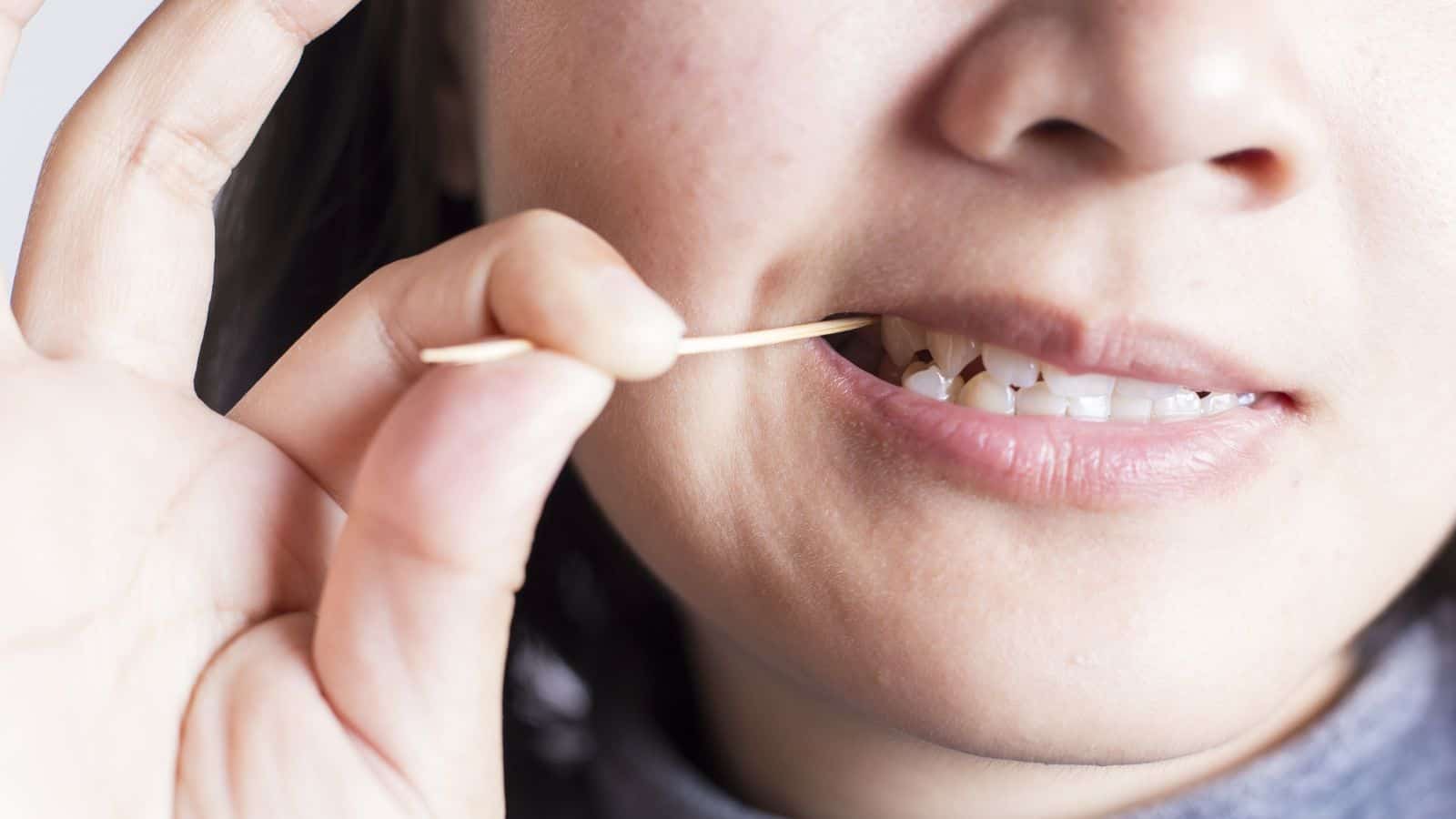We’ve all heard about the dangers of eating excessive amounts of sugar, but how exactly are we supposed to know when a healthy amount becomes too much? If you’re worried about your intake, keep reading to learn these 18 signs you’re eating too much sugar.
Constant Cravings for Sweet Foods

If you find yourself constantly craving your next fix of sweet snacks, this could be a sign that you’re consuming too much sugar. Healthline warns that, according to research, sugar can be as addictive as drugs, making it much harder to resist those sweet temptations. As you eat more sugar, these cravings can become more intense and frequent.
Unexpected Weight Gain

Because sugar is high in calories, eating too much is associated with weight gain. If you’ve recently gained a lot of weight and aren’t sure why, you might want to examine your intake of sugar. Excess sugar is also turned into fat by the liver, so you’re more likely to see an increase in body fat.
Persistent Tiredness and Lack of Energy

Eating sugary foods will obviously cause your blood sugar levels to peak and then crash again, which is associated with spikes in energy followed by periods of tiredness. Because of this, a high sugar intake can contribute to chronic fatigue and an overall sense of tiredness.
Frequent Mood Swings

On a similar note, these rapidly changing blood sugar levels can lead to intense mood swings that have a negative impact on your mental and emotional health. What’s more, according to theNational Institutes of Health, a high sugar intake is also linked to a higher prevalence of depressive symptoms.
Skin and Complexion Issues

If you’ve noticed that you’re having an issue with stubborn skin issues such as eczema, acne, or inflammation, this could be a sign that you’re eating too much sugar. Sugar is known to cause inflammation within the body, which can negatively impact skin health.
Increased Dental Problems

Sugar is famously bad for your tooth and gum health, leading to dental decay and cavities. This is because bacteria within your mouth feed on sugar, allowing it to spread and produce acid that damages your teeth. So if you’ve noticed you’re having more dental problems, it may be time to reduce your sugar intake.
Joint Pain

As previously stated, sugar can cause inflammation within your body. Another way this can affect your health is by causing increased joint pain and increasing your risk of developing arthritis. If you eat a lot of sugar and experience these issues, it may be a good idea to cut back.
High Blood Pressure

Did you know that sugar can contribute to high blood pressure? One of the biggest culprits is high fructose corn syrup, which has been linked to elevated blood pressure levels. If you’re concerned about your blood pressure, you should be wary of how much sugar you’re consuming.
Digestive Issues

A high sugar intake can lead to issues with your gut health and digestive system. This is largely because sugar can ferment within the gut, leading to gas, discomfort, and bloating. It can also worsen symptoms of irritable bowel syndrome (IBS).
Increased Hunger Levels

Sugar is not as good at filling you up as other foods, so it’s possible to eat a lot without feeling satisfied. This can cause you to experience more hunger than usual, even if you’re eating more than enough calories. Over time, this can also cause you to struggle with unwanted weight gain.
Difficulty Concentrating

Sometimes, sugar can impact your cognitive function, causing you to struggle more with concentration and other mental tasks. One key reason for this is that blood sugar spikes and crashes can have a negative impact on your mental clarity. If you’ve found yourself struggling to focus, you may want to try cutting back on sugar.
Sleep Disturbances

Eating too much sugar, especially close to bedtime, can negatively impact your sleep quality and quantity. It can make it more difficult for you to fall asleep and stay asleep. For this reason, it’s best to consume sweet snacks in moderation and far away from bedtime.
Fatigue After Meals

One common reason for feeling tired after meals is an excessively high sugar intake. Excess sugar causes significant spikes and crashes in your blood sugar levels, which can create feelings of fatigue and exhaustion. Eating less sugar and more protein and fiber can help you combat this issue.
Increased Thirst

A high sugar intake is often associated with increased thirst and dehydration. This is because sugar pulls water away from your cells, requiring more fluid to maintain a state of balance. If you seem to always feel thirsty despite drinking a lot of water, this could be the reason.
Fatty Liver Issues

When sugar is consumed in excess, it is stored as fat in the liver. According to the National Library of Medicine, over time, this can lead to non-alcoholic fatty liver disease (NAFLD). If you’re concerned that this could be an issue for you, you should reduce your intake of sugar and consider getting yourself checked out by a doctor.
Blurred Vision

Excess sugar can cause the lenses in your eyes to swell, reducing your ability to see and focus. Over time, this can damage blood vessels in your eyes and cause vision problems. This issue is usually especially noticeable immediately after meals.
Yeast Infections

Too much sugar can contribute to the growth of yeast, potentially causing frequent yeast infections. If you seem to struggle with recurrent infections, this may be a sign that it’s time to reduce your sugar intake. Symptoms of yeast overgrowth include infection, discomfort, and itchy sensations.
Slow Healing of Cuts and Wounds

Eating too much sugar can impair your body’s natural ability to heal cuts and wounds. This is partly because high blood sugar levels can negatively impact your blood circulation, which slows down the healing process. If you’re struggling with slow-healing wounds, you may want to try reducing your sugar intake.
No comments:
Post a Comment